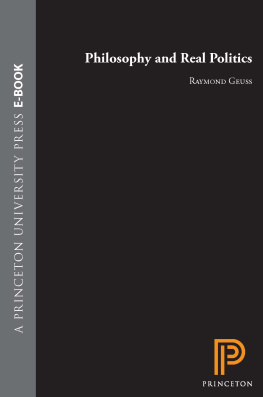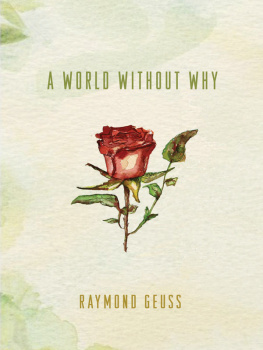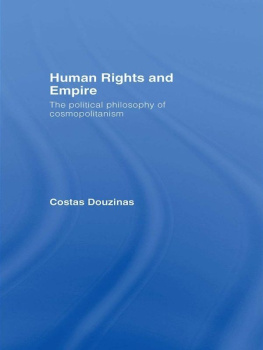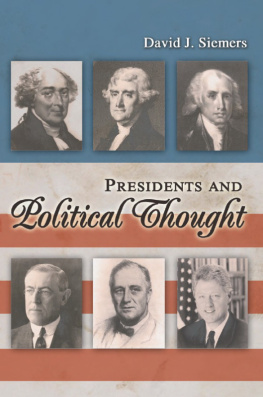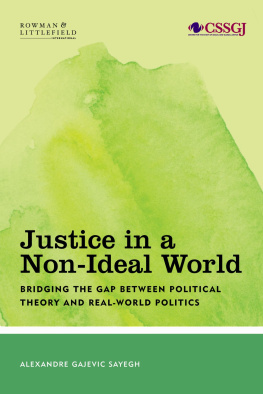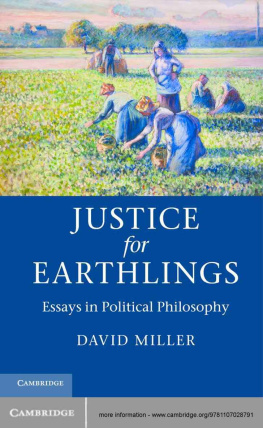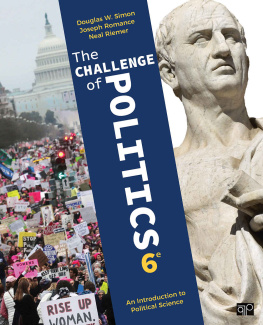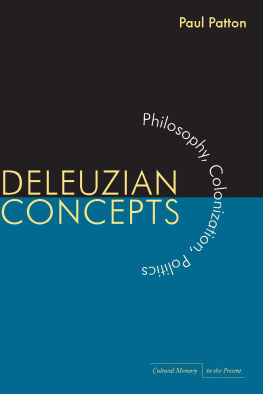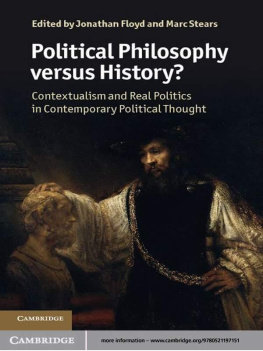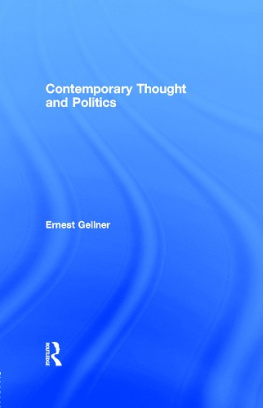
Philosophy and Real Politics
Raymond Geuss
Philosophy and Real Politics
PRINCETON UNIVERSITY PRESS
Princeton and Oxford
Copyright 2008 by Princeton University Press
Published by Princeton University Press, 41 William Street, Princeton,
New Jersey 08540
In the United Kingdom: Princeton University Press, 6 Oxford Street,
Woodstock, Oxfordshire OX20 1TW
All Rights Reserved
Library of Congress Cataloging-in-Publication Data
Geuss, Raymond.
Philosophy and real politics / Raymond Geuss.
p. cm.
Includes bibliographical references and index.
ISBN 978-0-691-13788-9 (hardcover : alk. paper) 1. Political science
Philosophy. I. Title.
JA71.G46 2008
320.0dc22 2007052740
British Library Cataloging-in-Publication Data is available
This book has been composed in Minion with Syntax display
Printed on acid-free paper.
press.princeton.edu
Printed in the United States of America
10 9 8 7 6 5 4 3 2 1
Contents
Preface
The following text is an expansion of a lecture I gave at the University of Athens in April 2007 under the title (Lenin), Rawls, and Political Philosophy. The original lecture has since appeared in the journal Cogito, in a translation into Modern Greek, for which I wish to thank Dr. Vasso Kindi. My thanks also to Katerina Ierodiakonou for the kind invitation to speak in Athens. The death of my friend Michael Frede while swimming in the Gulf of Korinth in August 2007 prevents me from thanking him for three decades of hospitality and illuminating conversation, and specifically for the strong encouragement he gave me to publish the lecture. A mainstay of my intellectual life during the past year and a half has been the fortnightly German-language Philosophisches Forschungskolloquium based in the Cambridge Faculty of Philosophy; I have had the great good fortune to be able to discuss most of the material in this text extensively (in one form or another) with the members of that group: Manuel Dries, Fabian Freyenhagen, Richard Raatzsch, Jrg Schaub, and Christian Skirke. My thanks also to Rdiger Bittner, John Dunn, Zeev Emmerich, Peter Garnsey, Istvan Hont, Quentin Skinner, and Ursula Wolf for discussions of the issues treated here and comments on the draft of this text. Needless to say, none of these individuals should be construed as necessarily agreeing with any particular claim I make in the text. I owe my greatest debt of gratitude to Hilary Gaskin for acute comments that have improved virtually every page of the manuscript. Ian Malcolm of the Princeton University Press has, as usual, been an unfailing source of sound advice, and a pleasure to work with.
Philosophy and Real Politics
Introduction
A strong Kantian strand is visible in much contemporary political theory, and even perhaps in some real political practice. This strand expresses itself in the highly moralised tone in which some public diplomacy is conducted, at any rate in the English-speaking world, and also in the popularity among political philosophers of the slogan Politics is applied ethics. Slogans like this can be dangerous precisely because they are slickly ambiguous, and this one admits of at least two drastically divergent interpretations. There is what I will call the anodyne reading of the slogan, which formulates a view I fully accept, and then there is what I will call the ethics-first reading.
The anodyne reading asserts that politicsmeaning both forms of political action and ways of studying forms of political actionis not and cannot be a strictly value-free enterprise, and so is in the very general sense an ethical activity. Politics is a matter of human, and not merely mechanical, interaction between individuals, institutions, or groups. It can happen that a group of passengers in an airplane are thrown together mechanically when it crashes, or that a man slipping off a bridge accidentally lands on a tramp sleeping under the bridge. The second of these two examples is a salutary None of this implies that it might not be of the utmost importance to aspire to ensure relative stability and consistency in certain limited domains.
Humans beliefs and desires are in constant flux, and changes in them can take place for any number of reasons. Transformations of specific sectors of human knowledge are oft en accompanied by very widespread further changes in worldview and values. People have oft en claimed that Darwinism had this effect in Europe at the end of the nineteenth century. In addition, new technologies give people new possible objects of desire and, arguably, new ways of desiring things. It is by no means obvious that the hunger which was satisfied when Neolithic humans tore apart raw meat with their fingers is the same kind of thing as the hunger that is satisfied by dining in a five-star restaurant in 2008.to consult their esoteric loreor to what are, in historical terms, very short periods, with little in between. The effects of the short-term learning can oft en wear off remarkably quickly. Colonial intervention was in bad odour in Britain between the 1960s and the year 2000, but we now (2007) have troops fighting in Iraq and Afghanistan again.
One can speak of politics as applied ethics if this form of words takes ones fancy, but it is not obvious that all the above-described phenomena form anything like a natural kind or a single coherent domain for study by some determinate intellectual speciality: applied ethics is just a term applied to people trying to manage forms of action and modes of evaluation that distinguish a good from better or less good as they interact with political programmes, individual and group interests, changes in the economic structure, the requirements of action, institutional needs, and contingently arising historical problems of various kinds.
When I object to the claim that politics is applied ethics, I do not have the above anodyne reading in mind. Rather, I intend a much more specific view about the nature and structure of ethical judgment and its relation to politics, and in particular a theory about where one should start in studying politics, what the final framework for studying politics is, what it is reasonable to focus on, and what it is possible to abstract from. Politics is applied ethics in the sense I find objectionable means that we start thinking about the human social world by trying to get what is sometimes called an ideal theory of ethics. This approach assumes that there is, or could be, such a thing as a separate discipline called Ethics which has its own distinctive subject-matter and forms of argument, and which prescribes how humans should act toward one another. It further assumes that one can study this subject-matter without constantly locating it within the rest of human life, and without unceasingly reflecting on the relations ones claims have with history, sociology, ethnology, psychology, and economics. Finally, this approach proposes that the way to proceed in ethics is to focus on a very few general principles such as that humans are rational, or that they generally seek pleasure and try to avoid pain, or that they always pursue their own interests; these principles are taken to be historically invariant, and studying ethics consists essentially in formulating them clearly, investigating the relations that exist between them, perhaps trying to give some kind of justification of at least some of them, and drawing conclusions from them about how people ought to act or live. Usually, some kind of individualism is also presupposed, in that the precepts of ethics are thought to apply directly and in the first instance to human individuals. Oft en, although not invariably, views of this type also give special weight to ethical intuitions that people in our society purportedly share, and they hold that an important part of ethics is the attempt to render these intuitions consistent.
Next page
